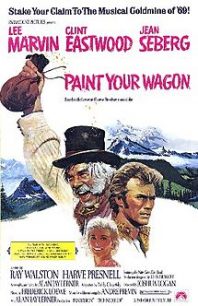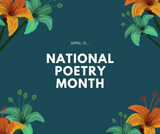
Alexander Maksik at Third Place Ravenna
Alexander Maksik is the author of three novels, the most recent of which is out this season as a paperback original from Europa Editions. Shelter in Place is told by Joe March, a Northwesterner looking back on his life, especially the years of his early adulthood. While tending bar, Joe meets more than his match in the form of Tess Wolff, an intensely vibrant young woman who is no mere foil for the narrator. Their idyllic season of first love is interrupted when Anne-Marie, Joe’s mother, kills a man in a situation that blurs the line between self-defense and brutality. Joe and Tess join his father, Richard, in the small prison town where Anne-Marie is incarcerated, keeping watch over her and each other as they fumble to create a new family dynamic.
Shelter in Place is emotionally and intellectually nuanced, yet reads at times like a thriller, less a whodunit than a whydunit. It’s particularly astute in the way it follows the family’s mercurial moods and explores their possibly hereditary nature–Joe’s descriptions of his depression as an enveloping tar or a black bird pecking at his soul are both poetic and grounded. The book is equally fascinating when it examines the public response to Anne-Marie’s violence. Is she a radical feminist rebel or a dangerous felon? Or both? As if all this wasn’t enough to capture readers, it’s also one of the best fictional studies of our region in recent memory. NW Book Lovers asked recently “What is THE book for your state?” and in years to come, many Washingtonians will give Shelter in Place as their answer.
 Maksik has been on a continuing national tour to promote his novel and last month swung through Seattle, visiting the Ravenna location of Third Place Books. He was poised as he read from his work, and generous to other writers in the Q&A that followed (Love Me Back by Merritt Tierce was one notable recommendation). Among the crowd were booksellers from at least three other stores, which brought to mind old anecdotes about the stand-up comedy of Lenny Bruce–you knew he was really funny not by the audience’s reaction, but by the way he cracked up the band.
Maksik has been on a continuing national tour to promote his novel and last month swung through Seattle, visiting the Ravenna location of Third Place Books. He was poised as he read from his work, and generous to other writers in the Q&A that followed (Love Me Back by Merritt Tierce was one notable recommendation). Among the crowd were booksellers from at least three other stores, which brought to mind old anecdotes about the stand-up comedy of Lenny Bruce–you knew he was really funny not by the audience’s reaction, but by the way he cracked up the band.
Maksik was kind enough to speak with some of those booksellers, including me, for about an hour after his appearance. Since I’m a terrible note-taker, he was also kind enough to let me pester him with some emailed questions after that. –James Crossley, Island Books, Mercer Island, WA
James Crossley: Shelter in Place covers ground from Cannon Beach to Seattle, along with the fictitious Western Washington prison town of White Pine. Throughout the novel, the sense of place is specific and vivid. (I used to live around the corner from Hardwick’s hardware in Seattle, the site of one key incident). Was this the result of research or your own Northwest experience?
 Alexander Maksik: It was, primarily, the result of my own experience. I grew up in Idaho and attended Whitman College, and so have, over the years, spent a lot of time both in Washington and Oregon. As I was writing, I thought frequently of two trips I took a long time ago: backpacking along the coast of the Olympic Peninsula and another to the San Juans. I will admit, however, that I didn’t know Hardwick’s until I did a little research. I wanted to use a family-owned store that had been around for a long time. Those places are disappearing too rapidly and it’s just the kind of shop that would make Richard March happy.
Alexander Maksik: It was, primarily, the result of my own experience. I grew up in Idaho and attended Whitman College, and so have, over the years, spent a lot of time both in Washington and Oregon. As I was writing, I thought frequently of two trips I took a long time ago: backpacking along the coast of the Olympic Peninsula and another to the San Juans. I will admit, however, that I didn’t know Hardwick’s until I did a little research. I wanted to use a family-owned store that had been around for a long time. Those places are disappearing too rapidly and it’s just the kind of shop that would make Richard March happy.
JC: There’s a very propulsive quality to the novel, with the chapters falling quickly and inevitably after each other like dominoes. It feels straightforward as you read it, but the narrative jumps frequently from the present to the past and back again. Can you talk about the structure of the book and why you built it that way?
AM: I’m glad to know that it feels that way to you. I wanted the story to unfold for the reader in the way that it would unfold for its narrator. In many ways, Joey is telling the story to himself and, in doing so, he’s trying to make sense of what’s happened to him and his family. He, like most of us, is drawn to story, in part because it provides the illusion of order. A neat beginning, middle and end. The promise of resolution, of obstacles inevitably overcome. He seeks these things within both the past and the present, trying to untangle a very difficult history from within an erratic and complex mind. I hoped the reader would have a sense, not only of the story, but of his mind at work, and his effort to explain people and experience that may very well be inexplicable.
JC: Although SiP is a personal story, focusing on individual people with individual problems, it’s also in part a political novel. Was that a conscious decision or simply an outgrowth of writing about characters who live in the real world?
AM: I can’t imagine writing a novel that isn’t, in one way or another, political. I write in response to what I see, both within my immediate world and in the news. Both often make me angry and that anger becomes part of the work. I hope that it always will and, if it doesn’t I’ll stop writing. That said, I have no interest in producing political screeds masquerading as fiction. And however I may see the world, and however angry I may be, my loyalty is to story and character, and whatever politics you see in this book are, first and foremost, those of its characters.
 JC: Remember the musical Paint Your Wagon? According to the lyrics, “Away out here they got a name / For rain and wind and fire / The rain is Tess, the fire Joe . . .” Have I found the key to interpreting Shelter in Place?
JC: Remember the musical Paint Your Wagon? According to the lyrics, “Away out here they got a name / For rain and wind and fire / The rain is Tess, the fire Joe . . .” Have I found the key to interpreting Shelter in Place?
AM: I want so much to tell you that you have unlocked the secret code. But I’m sorry to say that until this very moment, I hadn’t thought of those lyrics. I wish you’d been around while I was writing this thing. Though, really, I think Tess would be the fire and Joe the rain.
JC: I do have an actual question about Joe and Tess. Though their lives are full of activity, they’re also great readers, and you find space in the novel to share a bit of what’s on their bookshelves. Is their taste the same as yours?
AM: In some cases, yes. Of those mentioned in the novel, each of the books below is important to me for one reason or another. But I think it’s important to point out that Joey loves many of them in large part because Tess does. Or did when they were in their twenties. There’s something so sad and strange and lovely about looking at books that were once so crucial–all those notes and asterisks. But it’s even more powerful, more overwhelming I think, to see a book once owned by someone else, and above all, by someone you’ve loved. [Works referenced more or less explicitly in the text include Glass, Irony and God by Anne Carson, “Lines for Winter” by Mark Strand, The Once and Future King by T.H. White, Giovanni’s Room by James Baldwin, and 31 Letters and 13 Dreams by Richard Hugo.]
 JC: You’re a stablemate of sorts with Elena Ferrante, both of you being published by the great people at Europa Editions. Your reaction to the loss of her anonymity?
JC: You’re a stablemate of sorts with Elena Ferrante, both of you being published by the great people at Europa Editions. Your reaction to the loss of her anonymity?
AM: I think the “investigation” was vile, but utterly unsurprising. We are, it seems, increasingly incapable of evaluating a work of art without also evaluating its creator. It’s awful that a courageous, vastly talented woman who has spent so much of her life living as she chose, writing just the books she wanted to write, couldn’t go on doing so without having her privacy invaded by a small, arrogant man. A man, it’s important to note, who clearly wants precisely the kind of celebrity that Elena Ferrante has spent her life avoiding. I will also say, however, it’s equally important to acknowledge that many of us in the publishing industry are complicit in perpetuating the vapid celebrity culture that encourages his brand of reporting.
JC: You’ve been on the road a lot and just completed a promotional swing through our region, so you probably have some opinions about this: What are the best places to eat in the Northwest?
AM: I’m sorry to say that this time around, I spent a lot more time in Portland than I did in Seattle where I barely had time to eat anything at all. In Portland I’d recommend Imperial and Ava Gene’s. I liked both very much.
Alexander Maksik’s Shelter In Place is a Best of the Northwest feature in the Holiday Books campaign celebrated at 75 indies throughout the Northwest!


